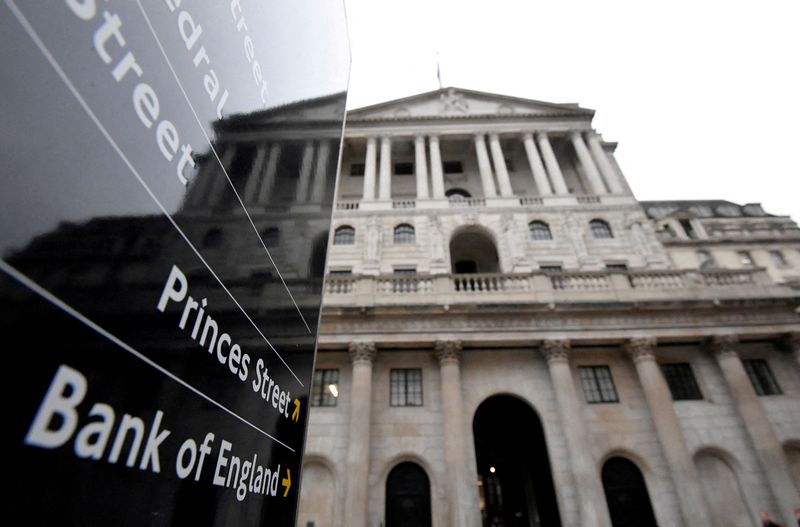Gold prices edge up after sharp losses; US inflation data awaited
Investing.com - The Bank of England holds its latest policy-setting meeting next week, and is widely expected to cut interest rates and hint at more reductions to come as the UK economy stagnates.
Economists widely expect the BoE to cut its benchmark rate to 4.5%, from 4.75%, on Feb. 6, when it will also update its economic growth and inflation forecasts.
Since the BoE published its last projections in November, the economy has stagnated and measures of inflation most closely watched by rate-setters dropped last month.
Bank of America Securities agrees with the consensus, expecting an 8-1 vote in favor of a cut by the Monetary Policy Committee.
“The faster than expected drop in services inflation, weak growth and labor market loosening supports the case for a cut,” BOA analysts said, in a note dated Jan. 31.
Given the uncertainty surrounding the economic outlook, investors will be sensitive to any changes in the views of Monetary Policy Committee members and the future guidance.
In December, six voted to keep rates on hold while three backed a quarter-point cut.
“We don’t expect the BoE’s guidance to shift away from the gradual (interpreted as quarterly) and meeting by meeting approach or signal an intent to speed up cuts,” said BOA.
“In our view February is too early for a decisive dovish shift because inflation is likely to pick up in coming months, which along with rising inflation expectations, point to persistence risks.”
Financial markets are pricing in almost three quarter-point BoE rate cuts this year, compared with fewer than two in early January, when there was a sharp but short-lived surge in British government bond yields.
Barclays (LON:BARC) also expects the BoE to cut by 25 basis points, with a 7-2 split the most likely vote.
“We expect forecast revisions to downgrade GDP growth, revise up unemployment and exacerbate the divergence between a near-term overshoot and medium-term undershoot of inflation,” said analysts at Barclays, in a note dated Jan. 31.
The UK bank doesn’t expect any material change in the MPC’s guidance, stressing uncertainty in the outlook given global and domestic developments.
Forecast revisions are likely to show inflation staying further above target for the next year, before falling to target two-years ahead and undershooting 2% through the final year of the forecast period.
Real GDP will likely be revised down and unemployment revised up with limited change in the assessment of the supply-side of the economy.
“Beyond this meeting, we continue to expect the MPC to shift to sequential Bank Rate cuts from May onwards, to a terminal rate of 3.5% in September 2025,” Barclays added.
